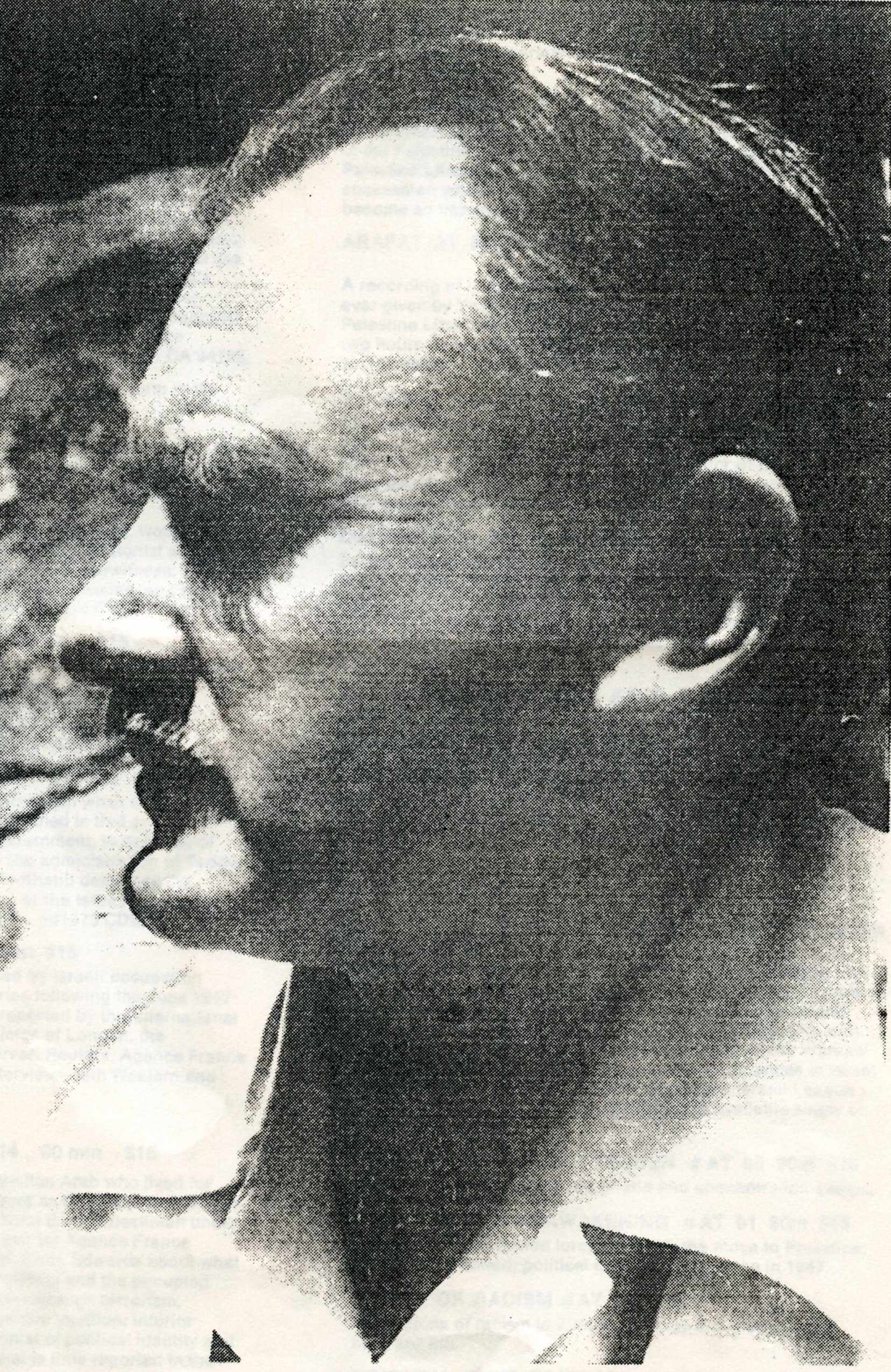Independent Collections
These collections were produced by independent journalists. Many of these recordings make up the bulk of the original collection of the Freedom Archives.
Subcollections
-
Colin Edwards Collection
Materials representing the life-work and journalism of a Welsh radio correspondent and journalist who worked for Pacifica stations, the BBC and many other broadcasters. -
Colin Edwards Free Speech Movement
This collection is produced by journalist Colin Edwards and represent a comprehensive account of the Free Speech Movement and its effect on the political climate of UC Berkeley. -
Programs produced by Kiilu Nyasha
Kiilu Nyasha is a revolutionary journalist and former member of the Black Panther Party. Kiilu still hosts Freedom Is A Constant Struggle, which now appears as a TV program. -
“Nothing is More Precious Than…” a news magazine including music and poetry
KPFA weekly news program running from 1973-1976 featuring in-depth coverage of liberation struggles around the world. -
“The Real Dragon” a news magazine including music and poetry
Real Dragon was a radio program broadcast on KPFA from 1971-1973. This news show focused on issues of national liberation, political prisoners, Vietnam and other major national and international topics.
Documents
8 Documents Found
Hanan Ashwari, spokeswoman for the Palestinian delegation at the peace talks going in in 1992 speaks about the situation in the Middle East and the negotiations.
Hanan Ashwari, spokeswoman for the Palestinian delegation at the peace talks going in in 1992 speaks about the negotiations.
Date: 4/21/1992Call Number: CE 485Format: Cass A & BProgram: Alternative RadioCollection: Colin Edwards Collection
Winona LaDuke, Native American activist, environmentalist juxtaposes two concepts of Native American life (time is cyclical and reciprocity) with two concepts in industrial thinking (time as timeline and capitalism). She speaks in response to the quincentennial celebration of Columbus' arrival to the "new world." LaDuke calls for recognition of the "holocaust" of the Native American people and cites statistics relating to the mistreatment of indigenous populations, such as using their land as toxic waste dumps.
Date: 4/27/1992Call Number: CE 486Format: Cass A & BProducers: KALWProgram: Alternative RadioCollection: Colin Edwards Collection
Russell Means, Oglala Sioux activist, speaks in response to Andy Rooney's column on how it is "silly" for Native Americans to complain about professional sports team names.
Means discusses the image of Native Americans, as opposed to Blacks in America. He combats the claim that Native Americans have no great culture and complicates the idea of Native American contribution. He discusses the effects of nuclear waste on Indian Reservations, or what he calls "concentration camps." He puts responsibility on the white citizens of America to see to it that the US government follows its own laws, and to curb the waste it produces.
For things to change, people must "Kill Columbus - kill his legacy."
Date: 3/25/1992Call Number: CE 665Format: CassetteProducers: Colin EdwardsCollection: Colin Edwards Collection
Two commentaries highlighting as real heroes military personnel who refused to engage in war crimes, from a German soldier in WW2 who was executed for refusing to take part in a firing squad against civilians, to the bombing of Egypt and Iraq/Persian Gulf, NATO bombing of Yugoslavia, attacks on Panama and Grenada, and other war crimes. Captain Yolanda Huet-Vaughn. M, was serving 2-and-a-half years for refusing to go to Persian Gulf war at the time of this commentary.
Date: 1/29/1992Call Number: CE 666Format: CassetteProducers: Colin EdwardsProgram: USS Liberty 1Collection: Colin Edwards Collection
Commentaries by Colin Edwards on the USS Liberty incident, in which the Israeli military attacked a US ship on June 8, 1967, during the Six-Day War killing 34 crew members, wounding 171. Israel later apologized, claiming it was a mistake. These 1992 commentaries raise serious questions about this claim as additional evidence of a cover up emerged.
Date: 1/29/1992Call Number: CE 667Format: CassetteProducers: Colin EdwardsProgram: USS Liberty 2Collection: Colin Edwards Collection
Second set of commentaries by Colin Edwards on the USS Liberty incident, in which the Israeli military attacked a US ship on June 8, 1967, during the Six-Day War killing 34 crew members, wounding 171. Israel later apologized, claiming it was a mistake. These 1992 commentaries raise serious questions about this claim as additional evidence of a cover up emerged.
Date: 1/29/1992Call Number: CE 668Format: CassetteProducers: Colin EdwardsProgram: USS Liberty 3Collection: Colin Edwards Collection
Third set of commentaries by Colin Edwards on the USS Liberty incident, in which the Israeli military attacked a US ship on June 8, 1967, during the Six-Day War killing 34 crew members, wounding 171. Israel later apologized, claiming it was a mistake. These 1992 commentaries raise serious questions about this claim as additional evidence of a cover up emerged.
8 Documents Found






